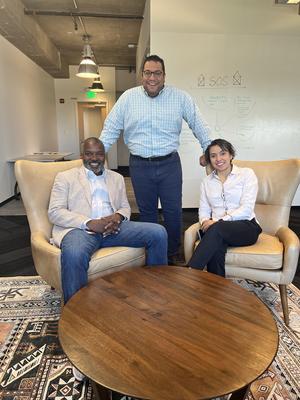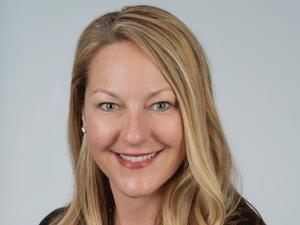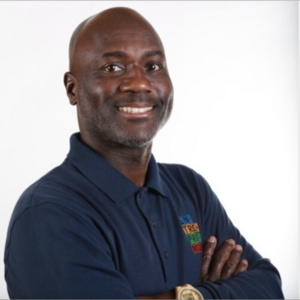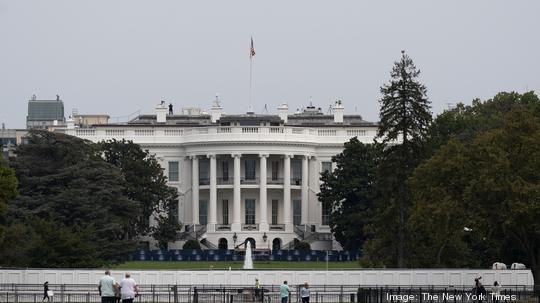
The White House has selected Felix Gilbert, a Baltimore entrepreneur, to help get part of the $1.2 trillion federal infrastructure package into the hands of underserved communities.
Gilbert’s company, XCell, is one of the five teams working with the White House as part of the 2022 "Opportunity Project," an initiative that began in 2016 to use federal and local data to tackle issues of inequality.
As part of the project, Gilbert and his team at XCell are making it easier for under-resourced communities to apply and win grants. XCell is trying to connect small municipalities to the skilled labor necessary to fill out the paperwork for a grant. Although there are plenty of places to search for government funding, few of them help understaffed grant seekers get connected to contractors who can complete the important work, such as getting cost estimates or construction timelines necessary to win a grant.
Gilbert and the other teams that are part of the volunteer-based White House project are also looking at creating products to track federal money to make sure states distribute it to smaller municipalities. XCell is focused on Aurora, Colorado as well as Native American tribes in New Mexico, Arizona, Alaska and the U.S. Virgin Islands.
The three-person digital design company was founded in 2004 and moved to Baltimore in 2011 to work with Zion Church. The company has worked with a variety of clients ranging from the U.S. Navy, the Center for Medicaid and Medicare and a variety of nonprofits.
Gilbert said he has been speaking directly to people to help understand their needs.
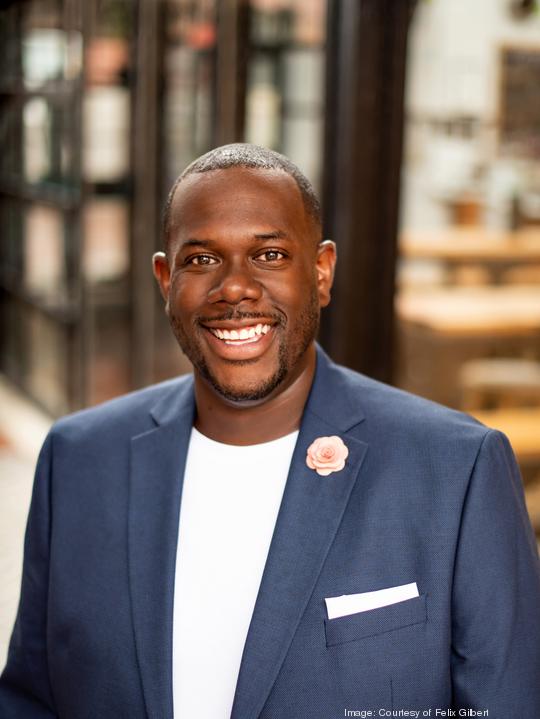
Though the White House often finds it easy to give money to larger cities such as Baltimore, Gilbert said it can often be difficult to fund projects in small cities. Infrastructure needs can include fixing water systems, getting broadband access or repairing bridges.
Many times the issues are because of a state government. Federal funds often go to a state to distribute, and each state has their own regulations, policies and procedures making it more difficult for small communities that don’t have the time to fill out a mountain of paperwork.
“We're starting to hear directly from the community that ‘we need help getting connected to service providers, that can help us go after some of these grants,’ ” Gilbert said.
The opportunity fell into Gilbert’s lap by happenstance. At a Code for AmericaWithout realizing it, a quick conversation in the hallway turned into a fantastic opportunity for Gilbert when Duval-Diop reached out soon after to gauge his interest in the project.
“Two days later, I had this random email that said 'Hey Felix, let’s talk,’” Gilbert said. “And at the bottom of the subject line, I saw ‘deputy chief data scientist at the White House.’ ”
For Gilbert, the volunteer opportunity is a way for him to give back to the communities where he grew up in Arizona and Colorado, and to pay tribute to his father. Gilbert's father, who was homeless for a time in the U.S. Virgin Islands, one of the locations Gilbert is focusing on, passed away in 2021.
“This is an opportunity for me to give back to the same communities that gave so much to my family,” Gilbert said.
A key factor ensuring Gilbert had the skills for the White House opportunity was his work with Fearless and the Hutch incubator. Gilbert worked with Fearless for several years before focusing on XCell full-time, and credits CEO Delali Dzirasa for providing much need mentorship and motivation to start his own business.
